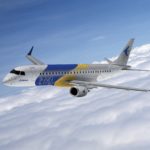A career in aviation is a dream for many aircraft and aerospace enthusiasts. While becoming a pilot is high on the agenda for most people, the aviation industry has a plethora of potential employment positions to choose from that offer interesting and exciting careers.
Aircraft maintenance engineer
Regular aircraft maintenance is imperative to making sure planes are operating safely. Aircraft maintenance engineers or mechanics are responsible for checking the systems on aeroplanes in between flights to ensure they are fit to fly. It’s a highly skilled job with a great deal of responsibility. Successful candidates will need to have meticulous attention to detail and obtain specific qualifications as well as a special licence from the CAA granting them permission to operate.
There are two types of maintenance: line maintenance, such as pre-flight checks and refuelling, and base maintenance work, which is undertaken in an aircraft hangar and involves more complex checks and diagnoses. You can choose to work in one of two areas: mechanics or avionics. Mechanics involves servicing the fuselage, engines, landing gear and airframe systems as well as any associated electrics. Alternatively, avionics covers the electronic systems that power the navigation, communications and flight control systems.
Becoming an aircraft maintenance engineer takes lots of time and dedication and you will need to obtain relevant engineering qualifications. If you excel in maths, physics and technology subjects, like engineering science, and enjoy problem-solving this could be the career for you.
Component sourcing account manager
Aircraft maintenance managers and engineers need to find replacement parts from somewhere. Time is critical – while an aircraft remains on the ground, it isn’t earning. This is where component sourcing solutions companies, like Artemis Aerospace, come in.
Flight simulator support
Flight simulators are essential for airlines. Pilots need to maintain regular training, keep up to date with aircraft revisions and undertake first time training for new aircraft models. This means simulators must operate 24/7 to ensure pilots can access them for these vital training requirements.
Aircraft technical manager
Most aircraft are owned by leasing companies and investment funds. A specialist aviation asset management company will manage an aircraft portfolio on behalf of owners, providing expert advice to maximise value and minimise risk.
The role of aircraft technical manager involves managing the parts, services and costs involved in maintaining an aircraft across its lifetime, from acquisition to disposal. Aircraft technical managers will also be responsible for arranging lease agreements with airlines who want to utilise available aircraft as part of their fleet.
Air Traffic Controller
Air traffic controllers are the eyes and ears on the ground for pilots, providing them with information and advice to help them take off and land safely on time.
There are three types of air traffic controller: area controller, approach controller and aerodrome controller. Area controllers track and guide aircraft at different altitudes in various sectors and regions. Approach controllers manage aircraft as they approach and take-off from an airport. Aerodrome controllers work in tower control, giving clearance to land and take off as well as guiding pilots to the correct taxi positions on stands and runways.
Excellent concentration, judgement, problem-solving and decision-making skills are all essential for this role. Jobs can be obtained via an apprenticeship or trainee scheme.


